FDA Extends Approval for Alirocumab to Lower LDL-C in Pediatric Patients with HeFH

Addressing an Unmet Need in Pediatric Patients with HeFH Heterozygous familial hypercholesterolemia (HeFH) affects about 1 in 313 people—characterized by dangerously high low-density lipoprotein cholesterol (LDL-C) levels. Untreated, it can trigger early heart disease. Detecting and treating it early in pediatric patients can prevent heart problems later. American College of Cardiology/American Heart Association guidelines define acceptable LDL-C […]
FDA Expands Labels for Bempedoic Acid Tablets and Combination Bempedoic Acid and Ezetimibe Tablets to Reduce Cardiovascular Risk
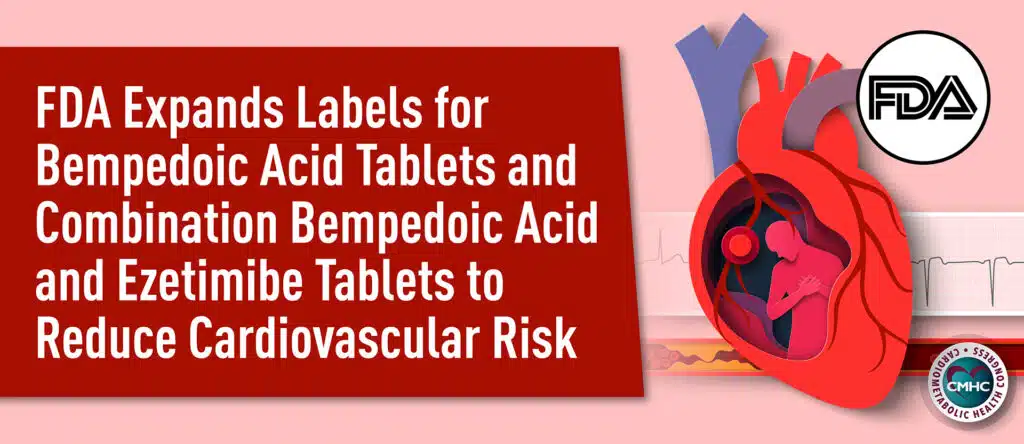
Introduction: Addressing the Need for Improved LDL Management in the US There is a clear need for innovative treatments to combat cardiovascular disease (CVD). Heart disease remains the leading cause of death for men and women. 80% of heart attacks and strokes linked to CVD are preventable with optimal risk factor management. However, every 40 seconds, an individual […]
Heart Disease Remains Leading Cause of Death for Women: Addressing the Gender Bias in Cardiovascular Care
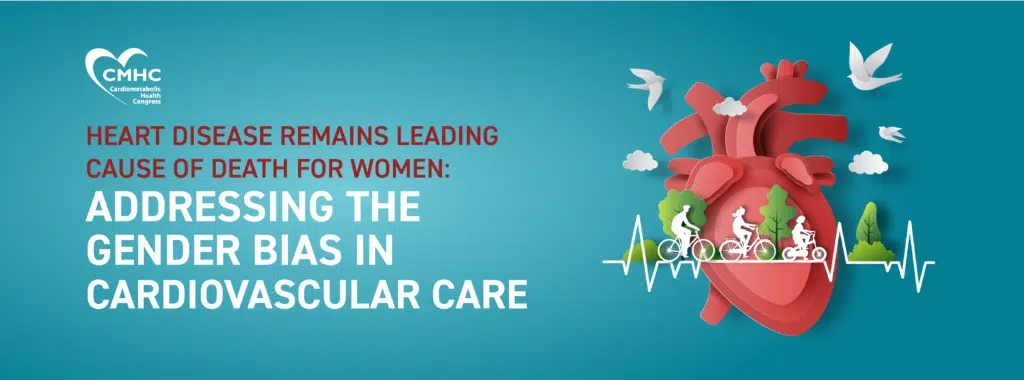
This February is American Heart Health Month, and all are encouraged to focus on their cardiovascular health, particularly women. Heart disease is the #1 leading cause of death for women in the US, and cardiovascular disease in women remains understudied, underrecognized, underdiagnosed, and undertreated. This disparity only widens when coupled with factors like race, ethnicity, and […]
Where Our Worlds Collide: The Systemic Storm of Inflammation, Cardiovascular Disease and Psoriasis
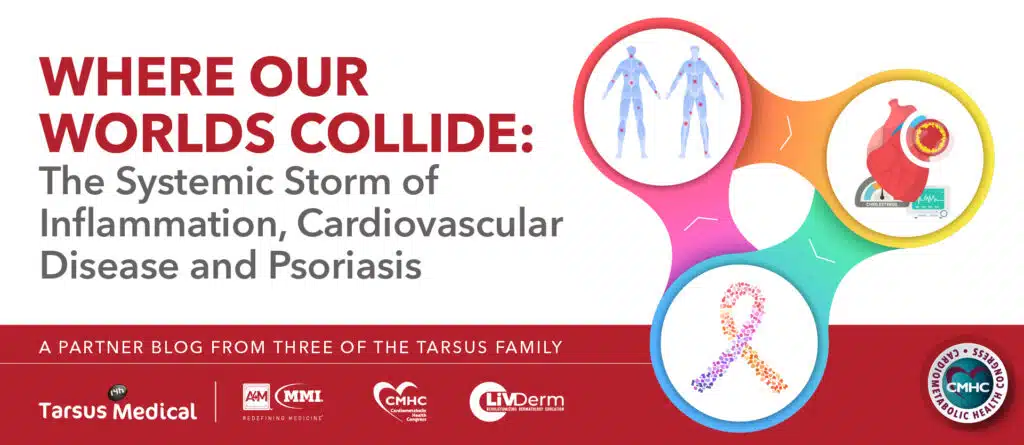
This is a partner Blog from three of the Tarsus Family of Brands: American Academy of Anti-Aging Medicine (A4M), Cardiometabolic Health Congress (CMHC), and LiVDerm. Introduction A review published in May 2021 in the European Cardiology Review sought to elucidate the various potential factors, mechanisms, or processes linking cardiovascular disease (CVD) and psoriasis. Observational […]
The Role of Meditation in Heart Health

Certain lifestyle and pharmacological interventions have proven effective at lowering the prevalence of CVD risk factors, which has increased apace with worsening population health. Although, there is a pressing need for novel, cost-effective interventions for primary and secondary prevention as the burden of cardiovascular disease remains steady. Experts continue to report positive data on the […]
Aortic Stenosis: Updated Guidelines for Diagnosis and Management

By Kate Buron In December 2020 the Joint Committee on Clinical Practice Guidelines, a combined effort from the American College of Cardiology (ACC) and the American Heart Association (AHA), released their updated guidelines for the management of patients with valvular heart disease (VHD). Within the new guidelines, the ACC and AHA provide clarity on the […]
The Head-Heart Connection: The Relationship Between Mental Health and Cardiovascular Health
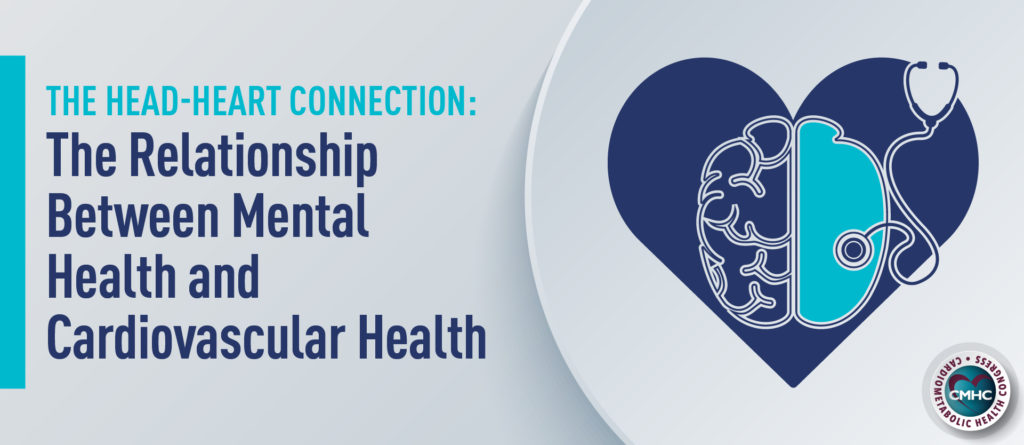
“A record of our emotional life is written on our hearts,” shared cardiologist and author Dr. Sandeep Jauhar in a 2019 Ted Summit presentation now viewed over four million times. He continued, “emotions can and do have a direct physical effect on the human heart.” Both mental health disorders and cardiovascular diseases are highly prevalent […]
Pregnancy-Related Cardiovascular Risk Tied to BMI and Blood Pressure
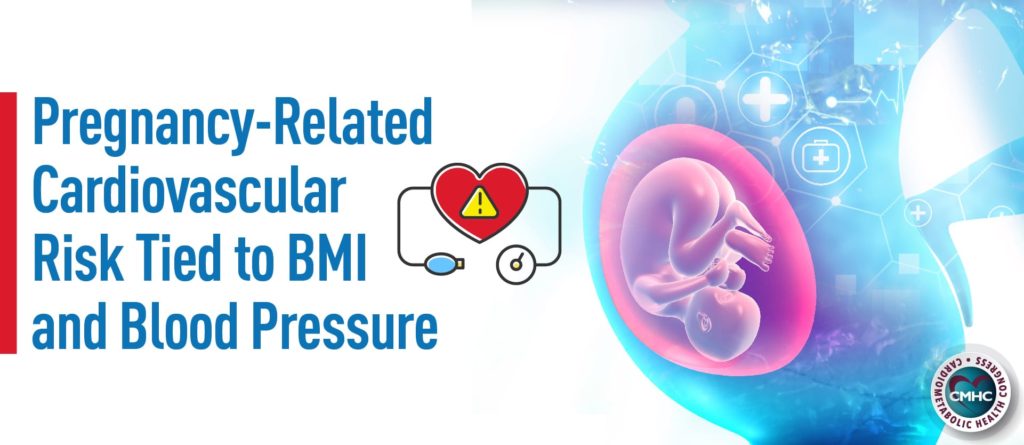
Women who have experienced hypertensive disorders of pregnancy (HDP) face a doubled risk of cardiovascular disease compared with those who have had normotensive pregnancies – and their risk factor levels remain higher through age 50 and beyond. Hypertensive disorders of pregnancy and cardiovascular disease share a host of common modifiable risk factors including adiposity, hypertension, […]
Association of Cigarette and E-Cigarette Use with CVD Biomarkers

Although the prevalence of cigarette smoking has significantly declined from nearly 21% of the U.S. adult population identifying as smokers in 2005 to only 14% today, an estimated 34.1 million adults still currently smoke cigarettes. In addition, many have transitioned to the use of electronic cigarettes in hopes of reducing cardiometabolic risks. However, the cardiovascular […]
Ideal Cardiovascular Health Behaviors and NAFLD Prevalence
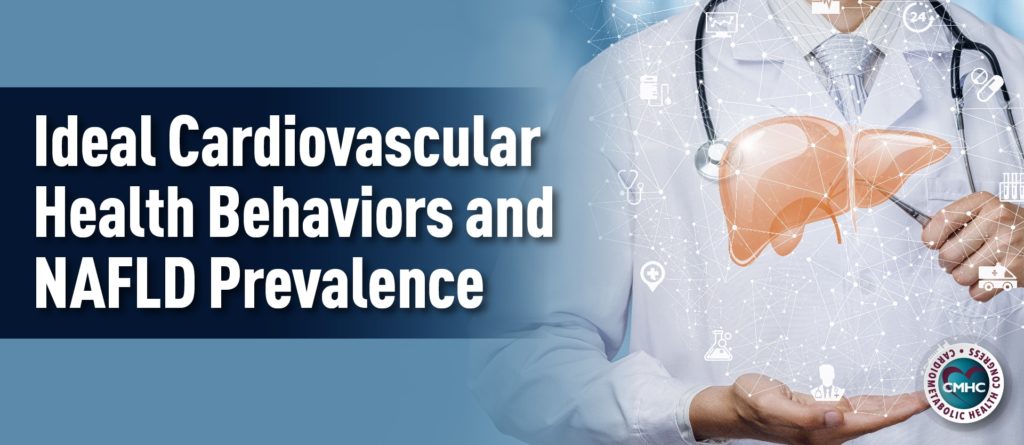
As a very common disorder, nonalcoholic fatty liver disease (NAFLD) is considered a significant risk factor for cardiovascular disease and a threat to cardiometabolic health. A series of ideal cardiovascular behaviors can be implemented as a prevention strategy to mitigate potential disease development. According to Ebenezer Oni, MD, MPH, cardiologist of the division of cardiology […]













